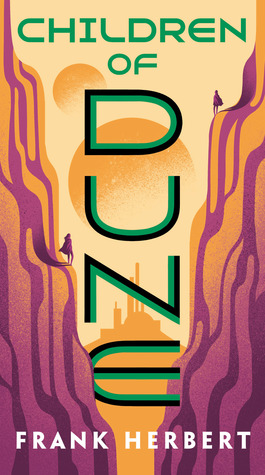TL;DR
In 'Children of Dune', Frank Herbert continues the saga of the Atreides family as twins Leto and Ghanima navigate the treacherous political landscape of Arrakis, grappling with their prophetic abilities and the manipulations of their aunt Alia.
What is Children of Dune about
'Children of Dune' is the third installment in Frank Herbert's legendary Dune Chronicles, delving into the lives of Leto and Ghanima Atreides, twin children of the Emperor Paul Muad'Dib. Set nine years after their father's mysterious disappearance, the twins possess extraordinary abilities that make them targets in a power struggle. Their aunt, Alia, rules with an iron fist but faces threats from the exiled House Corrino and a rebellious Fremen led by the enigmatic Preacher. The novel explores themes of power, destiny, and the weight of prophecy, presenting a rich tapestry of political intrigue and moral dilemmas.
Children of Dune 5 Key Takeaways
The Disappearance of Paul Muad'Dib
Nine years after Paul Muad'Dib's disappearance, the twins Leto and Ghanima are left to grapple with their father's legacy and the implications of their own prophetic powers.
Alia's Struggle for Power
Alia, ruling in her brother's name, faces rebellion and treason as both the displaced House Corrino and the Fremen challenge her authority, leading her to desperate measures to maintain control.
The Enigmatic Preacher
The novel introduces an enigmatic figure known only as the Preacher, who incites the Fremen to revolt against Alia's oppressive regime, highlighting the theme of resistance.
Twins' Prophetic Abilities
Leto and Ghanima must navigate the treacherous waters of their prophetic visions while plotting their own destinies, contrasting their views on leadership and responsibility.
Conflict and Resolution
As conflicts intensify, the twins' strategies unfold leading to a climactic confrontation that challenges the established order on Arrakis and brings transformative change.
Top Children of Dune Quotes
- 'Power attracts the corruptible.'
- 'The mind commands the body, and it obeys. The mind commands itself, and it is in chaos.'
Who should read Children of Dune?
'Children of Dune' is ideal for fans of science fiction and those who appreciate intricate world-building and philosophical depth. Readers interested in themes of power, politics, and the complexities of human nature will find this book particularly engaging.
Children of Dune Best Reviews
- 'Children of Dune' expands on the narrative of its predecessors, presenting a rich exploration of power dynamics, making it a compelling read for fans of the series.' - Publisher's Weekly
- 'Herbert's world-building is unparalleled, and his exploration of destiny through the twins leaves the reader contemplating the true nature of leadership.' - The Guardian
People also liked these summaries
Children of Dune FAQs
Is 'Children of Dune' as good as 'Dune'?
'Children of Dune' is often considered a strong continuation of the series, matching the original's ambition but with a more surreal plot. Readers may find its themes and character developments equally engaging.
What is the main message of 'Children of Dune'?
The novel emphasizes the complex nature of power and the necessity of embracing change, illustrating how leadership impacts society and individual destinies.
